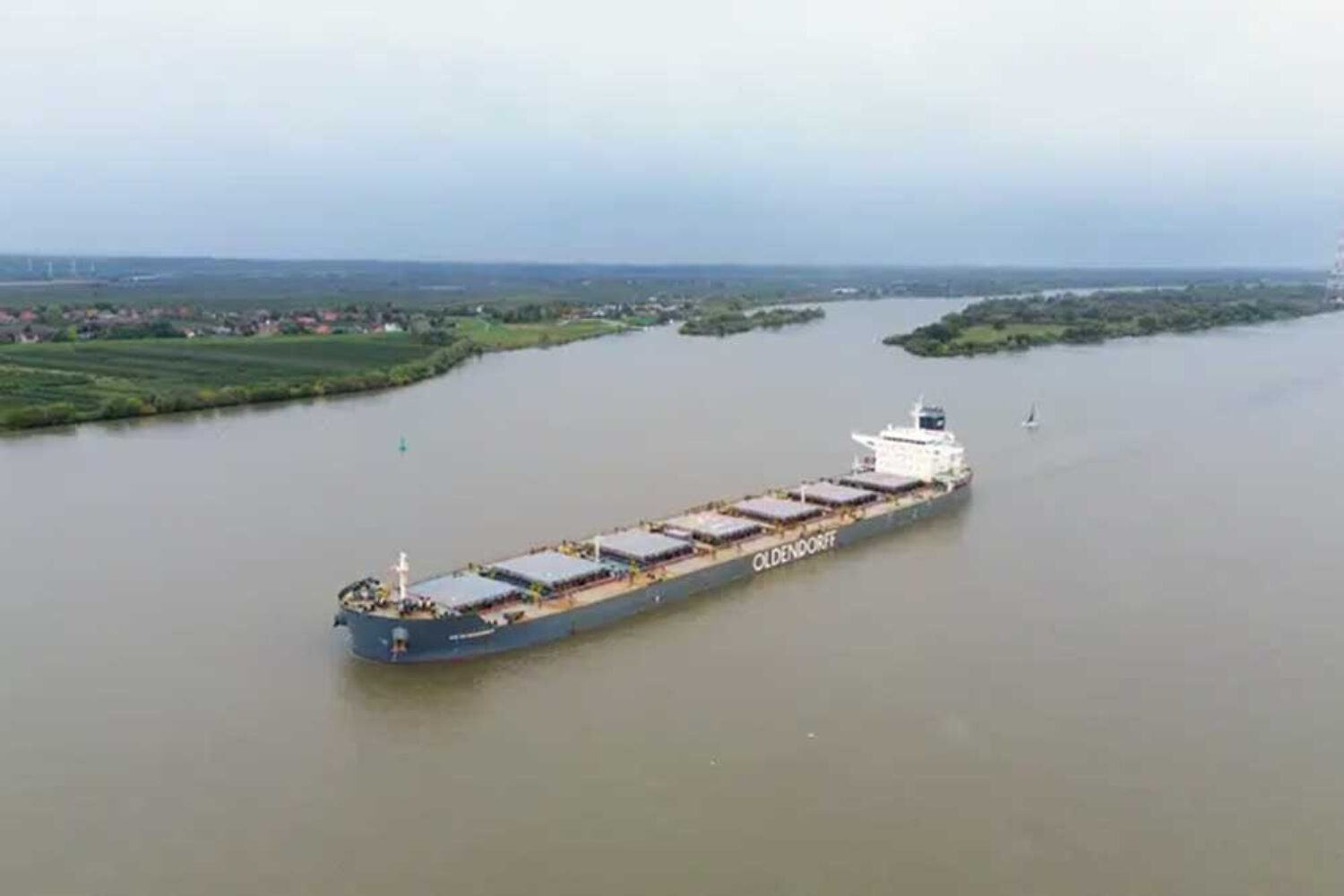The major Lübeck-based shipping company Oldendorff Carriers and the Salzgitter steel group have signed a long-term agreement to reduce CO2 emissions in the maritime transportation of iron ore.
Salzgitter Flachstahl GmbH, a subsidiary of Salzgitter AG, intends to take “a further step towards decarbonizing its own steel supply chain” in this way, as announced today.
From January 2026, Oldendorff intends to transport iron ore for Salzgitter from various loading ports to Hamburg as part of the agreement, using bulk carriers that are “operated with a focus on fuel efficiency”. By optimizing freight flows and routes, the collaboration should lead to a reduction in CO₂ emissions of at least 20%. According to the information provided, Salzgitter will not incur any additional costs as a result of these measures – rather, the reduction in fuel consumption in the transportation sector should lead to cost savings.
This collaboration is expected to save around 19,000 tons of CO₂e, which corresponds to a reduction of over 4,000 cars on the road for one year. The reductions correspond to the Scope 1 emissions for Oldendorff and the Scope 3 emissions for Salzgitter.
Oldendorff’s fleet comprises almost 700 ships. It mainly consists of “modern “eco” bulk carriers, which have lower fuel consumption compared to previous generations of ships”, according to the Lübeck-based shipping company. Among other things, optimized hull shapes, advanced engine technology and additional fuel-saving features would contribute to lower carbon intensity per tonne of cargo transported.
Gunnar Groebler, CEO of Salzgitter AG, referred to the Group’s so-called Salcos project, in which it is focusing on decarbonizing the internal production route for steel production and the associated process steps along the entire value chain. Logistics – in particular the transportation of raw materials by sea – plays a central role in this context. “We are therefore delighted to have Oldendorff at our side as a long-standing partner and strong companion on our path to transformation,” says Groebler
Henrik Christiansen, Executive Director and Head of Sustainability at Oldendorff, emphasized that the decarbonization of maritime transport is a complex challenge that requires coordination along the entire value chain. “This partnership with Salzgitter cements the relationship between two major German companies and reflects the kind of collaboration that is needed in the industry to make significant and immediate progress in reducing emissions and promoting more sustainable transportation solutions.”













